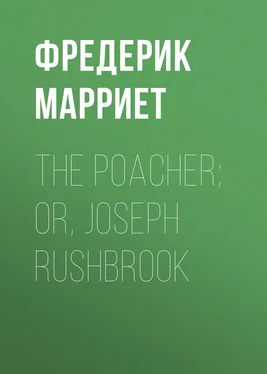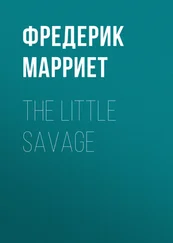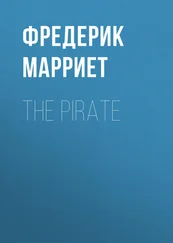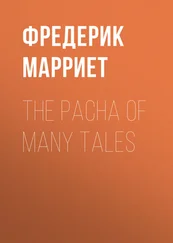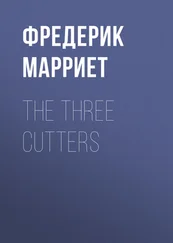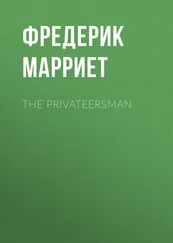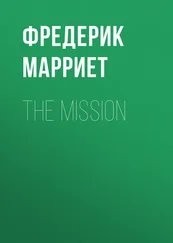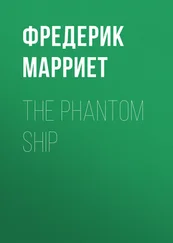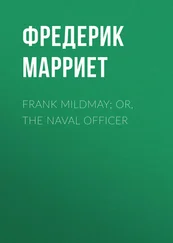Фредерик Марриет - The Poacher; Or, Joseph Rushbrook
Здесь есть возможность читать онлайн «Фредерик Марриет - The Poacher; Or, Joseph Rushbrook» — ознакомительный отрывок электронной книги совершенно бесплатно, а после прочтения отрывка купить полную версию. В некоторых случаях можно слушать аудио, скачать через торрент в формате fb2 и присутствует краткое содержание. Жанр: foreign_prose, literature_19, foreign_antique, на английском языке. Описание произведения, (предисловие) а так же отзывы посетителей доступны на портале библиотеки ЛибКат.
- Название:The Poacher; Or, Joseph Rushbrook
- Автор:
- Жанр:
- Год:неизвестен
- ISBN:нет данных
- Рейтинг книги:4 / 5. Голосов: 1
-
Избранное:Добавить в избранное
- Отзывы:
-
Ваша оценка:
- 80
- 1
- 2
- 3
- 4
- 5
The Poacher; Or, Joseph Rushbrook: краткое содержание, описание и аннотация
Предлагаем к чтению аннотацию, описание, краткое содержание или предисловие (зависит от того, что написал сам автор книги «The Poacher; Or, Joseph Rushbrook»). Если вы не нашли необходимую информацию о книге — напишите в комментариях, мы постараемся отыскать её.
The Poacher; Or, Joseph Rushbrook — читать онлайн ознакомительный отрывок
Ниже представлен текст книги, разбитый по страницам. Система сохранения места последней прочитанной страницы, позволяет с удобством читать онлайн бесплатно книгу «The Poacher; Or, Joseph Rushbrook», без необходимости каждый раз заново искать на чём Вы остановились. Поставьте закладку, и сможете в любой момент перейти на страницу, на которой закончили чтение.
Интервал:
Закладка:
Chapter Seven
The exhausted lad awoke again, and pursued his useless task of appeals for food and employment. It was a bright day, and there was some little warmth to be collected by basking in the rays of the sun, when our hero wended his way through Saint James’s Park, faint, hungry, and disconsolate. There were several people seated on the benches; and Joey, weak as he was, did not venture to go near them, but crawled along. At last, after wandering up and down, looking for pity in everybody’s face as they passed, and receiving none, he felt that he could not stand much longer, and emboldened by desperation, he approached a bench that was occupied by one person. At first he only rested on the arm of the bench, but, as the person sitting down appeared not to observe him, he timidly took a seat at the farther end. The personage who occupied the other part of the bench was a man dressed in a morning suit à la militaire and black stock. He had clean gloves and a small cane in his hand, with which he was describing circles on the gravel before him, evidently in deep thought. In height he was full six feet, and his proportions combined strength with symmetry. His features were remarkably handsome, his dark hair had a natural curl, and his whiskers and mustachios (for he wore those military appendages) were evidently the objects of much attention and solicitude. We may as well here observe, that although so favoured by nature, still there would have been considered something wanting in him by those who had been accustomed to move in the first circles, to make him the refined gentleman. His movements and carriage were not inelegant, but there was a certain retinue wanting. He bowed well, but still it was not exactly the bow of a gentleman. The nursery-maids as they passed by said, “Dear me, what a handsome gentleman!” but had the remark been made by a higher class, it would have been qualified into “What a handsome man!” His age was apparently about five-and-thirty—it might have been something more. After a short time he left off his mechanical amusements, and turning round, perceived little Joey at the farther end. Whether from the mere inclination to talk, or that he thought it presuming in our hero to seat himself upon the same bench, he said to him—
“I hope you are comfortable, my little man; but perhaps you’ve forgot your message.”
“I have no message, sir, for I know no one: and I am not comfortable, for I am starving,” replied Joey, in a tremulous voice.
“Are you in earnest now, when you say that, boy; or is it that you’re humbugging me?”
Joey shook his head. “I have eaten nothing since the day before yesterday morning, and I feel faint and sick,” replied he at last.
His new companion looked earnestly in our hero’s face, and was satisfied that what he said was true.
“As I hope to be saved,” exclaimed he, “it’s my opinion that a little bread and butter would not be a bad thing for you. Here,” continued he, putting his hand into his coat-pocket, “take these coppers, and go and get some thing into your little vitals.”
“Thank you, sir, thank you, kindly. But I don’t know where to go: I only came up to London two days ago.”
“Then follow me as fast as your little pins can carry you,” said the other. They had not far to go, for a man was standing close to Spring-garden-gate with hot tea and bread and butter, and in a few moments Joey’s hunger was considerably appeased.
“Do you feel better now, my little cock?”
“Yes, sir, thank you.”
“That’s right, and now we will go back to the bench, and then you shall tell me all about yourself; just to pass away the time. Now,” said he, as he took his seat, “in the first place, who is your father, if you have any; and if you haven’t any, what was he?”
“Father and mother are both alive, but they are a long way off. Father was a soldier, and he has a pension now.”
“A soldier! Do you know in what regiment?”
“Yes, it was the 53rd, I think.”
“By the powers, my own regiment! And what is your name, then, and his?”
“Rushbrook,” replied Joey.
“My pivot man, by all that’s holy. Now haven’t you nicely dropped on your feet?”
“I don’t know, sir,” replied our hero.
“But I do; your father was the best fellow I had in my company—the best forager, and always took care of his officer, as a good man should do. If there was a turkey, or a goose, or a duck, or a fowl, or a pig within ten miles of us, he would have it: he was the boy for poaching. And now tell me (and mind you tell the truth when you meet with a friend) what made you leave your father and mother?”
“I was afraid of being taken up—” and here Joey stopped, for he hardly knew what to say; trust his new acquaintance with his father’s secret he dare not, neither did he like to tell what was directly false; as the reader will perceive by his reply, he partly told the truth.
“Afraid of being taken up! Why, what could they take up a spalpeen like you for?”
“Poaching,” replied Joey; “father poached too: they had proof against me, so I came away with father’s consent.”
“Poaching! well, I’m not surprised at that, for if ever it was in the blood, it is in yours—that’s truth. And what do you mean to do now?”
“Anything I can to earn my bread.”
“What can you do—besides poaching, of course? Can you read and write?”
“Oh, yes.”
“Would you like to be a servant—clean boots, brush clothes, stand behind a cab, run messages, carry notes, and hold your tongue?”
“I could do all that, I think—I am twelve years old.”
“The devil you are! Well then, for your father’s sake, I’ll see what I can do for you, till you can do better. I’ll fit you out as a tiger, and what’s more, unless I am devilish hard up, I won’t sell you. So come along. What’s your name?”
“Joey.”
“Sure that was your father’s name before you, I now recollect and should any one take the trouble to ask you what may be the name of your master, you may reply, with a safe conscience, that it’s Captain O’Donahue. Now come along. Not close after me—you may as well keep open file just now, till I’ve made you look a little more decent.”
Chapter Eight
Our readers will not perhaps be displeased if we introduce Captain O’Donahue more particularly to their notice: we shall therefore devote this chapter to giving some account of his birth, parentage, and subsequent career. If the father of Captain O’Donahue was to be believed, the race of the O’Donahues were kings in Ireland long before the O’Connors were ever heard of. How far this may be correct we cannot pretend to offer an opinion, further than that no man can be supposed to know so much of a family’s history as the descendant himself. The documents were never laid before us, and we have only the positive assertion of the Squireen O’Donahue, who asserted not only that they were kings in Ireland before the O’Connors, whose pretensions to ancestry he treated with contempt, but further, that they were renowned for their strength, and were famous for using the longest bows in battle that were ever known or heard of. Here we have circumstantial evidence, although not proof. If strong, they might have been kings in Ireland, for there “might has been right” for many centuries; and certainly their acquirements were handed down to posterity, as no one was more famous for drawing the long bow than the Squireen O’Donahue. Upon these points, however, we must leave our readers to form their own opinions. Perhaps some one more acquainted with the archives of the country may be able to set us right if we are wrong, or to corroborate our testimony if we are right. In his preface to “Anne of Geierstein,” Sir Walter Scott observes, that “errors, however trivial, ought, in his opinion, never to be pointed out to the author without meeting with a candid and respectful acknowledgement.” Following the example of so great a man, we can only say, that if any gentleman can prove or disprove the assertion of the Squireen O’Donahue, to wit, that the O’Donahues were kings of Ireland long before the O’Connors were heard of; we shall be most happy to acknowledge the favour, and insert his remarks in the next edition. We should be further obliged to the same party, or indeed, any other, it they would favour us with an idea of what was implied by a king of Ireland in those days; that is to say, whether he held a court, taxed his subjects, collected revenue, kept up a standing army, sent ambassadors to foreign countries, and did all which kings do nowadays? or whether his shillelagh was his sceptre, and his domain some furze-crowned hills and a bog, the intricacies of which were known only to himself? whether he was arrayed in jewelled robes, with a crown of gold weighing on his temples? or whether he went bare-legged and bare-armed, with his bare locks flowing in luxurious wildness to the breeze? We request an answer to this in full simplicity. We observe that even in Ireland now, a fellow six feet high, and stout in proportion, is called a “prince of a fellow,” although he has not wherewithal to buy a paper of tobacco to supply his dhudeen: and, arguing from this fact, we are inclined to think that a few more inches in stature, and commensurate muscular increase of power, would in former times have raised the “heir-apparent” to the dignity of the Irish throne. But these abstruse speculations have led us from our history, which we must now resume.
Читать дальшеИнтервал:
Закладка:
Похожие книги на «The Poacher; Or, Joseph Rushbrook»
Представляем Вашему вниманию похожие книги на «The Poacher; Or, Joseph Rushbrook» списком для выбора. Мы отобрали схожую по названию и смыслу литературу в надежде предоставить читателям больше вариантов отыскать новые, интересные, ещё непрочитанные произведения.
Обсуждение, отзывы о книге «The Poacher; Or, Joseph Rushbrook» и просто собственные мнения читателей. Оставьте ваши комментарии, напишите, что Вы думаете о произведении, его смысле или главных героях. Укажите что конкретно понравилось, а что нет, и почему Вы так считаете.
